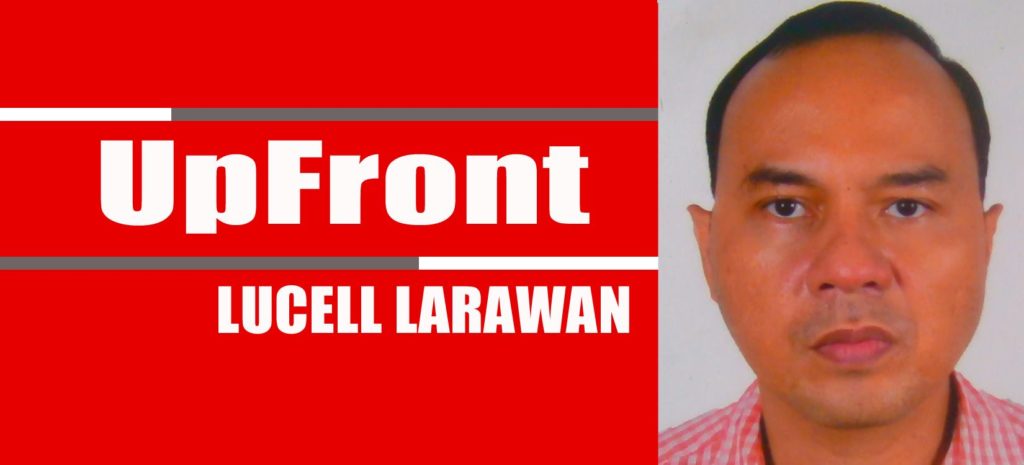
APOLLO Quiboloy’s surrender has stirred profound responses in both the public and Christian communities. Once regarded as a revered spiritual leader, Quiboloy now faces serious charges, leading to a moral reckoning not just for him but for society at large. The situation forces a reflection on values, trust, and the integrity of leadership in religious institutions. This isn’t merely the downfall of one man; it is a wake-up call for all.
Quiboloy, who proclaimed himself as the “Appointed Son of God,” built a large religious empire through his Kingdom of Jesus Christ. His sermons attracted thousands of followers, establishing him as a powerful figure in the Christian world. Yet, behind this image of divine leadership, serious allegations emerged, including human trafficking, fraud, and coercion. As investigations deepened, Quiboloy’s once untouchable empire began to fall apart.
His surrender was more than a legal event—it was a symbolic spiritual collapse. The figure who had once commanded followers from the pulpit now faced the reality of accountability. This surrender marks a significant turning point, not only for his followers but also for the broader community grappling with the implications of his actions. The questions now focus on leadership integrity and the consequences of misplaced trust.
The Public’s Response
Public reactions to Quiboloy’s surrender were mixed with shock, anger, and calls for justice. Social media became the main platform for discussions, with many seeing the surrender as long-awaited validation for victims. The incident had silenced voices for too long, and now, people demanded answers.
Those affected by Quiboloy’s alleged crimes felt deep betrayal. Families who once found comfort in his teachings now had to confront the harsh reality of his misconduct. The scandal reached far beyond his immediate followers, affecting the wider public’s perception of religious institutions. Trust in spiritual leaders had been broken, and the call for accountability grew louder.
The public’s demand for justice goes beyond legal consequences. There is a call for transparency and reforms to ensure that such abuses do not happen again. Quiboloy’s surrender represents more than the downfall of a single man; it highlights the need for a moral reckoning and systemic change in how spiritual leaders are held accountable.
The Christian Community’s Response
Within the Christian community, reactions to Quiboloy’s surrender varied. Some leaders expressed sorrow and disappointment, calling for prayers, repentance, and forgiveness. These voices emphasized the need for healing, not only for Quiboloy but for those affected by his actions. However, the scandal also ignited theological debates around justice and mercy, as the church struggled to balance forgiveness with the need for accountability.
Many Christians argued that true repentance must be accompanied by accountability and restitution. While divine forgiveness is limitless, earthly justice requires consequences for wrongdoing. This tension between justice and mercy has forced religious communities to confront their own approaches to leadership and moral integrity.
The scandal also put the role of the church under scrutiny. Many are calling for increased transparency and stricter measures to prevent abuses of power within religious institutions. Quiboloy’s case serves as a sobering reminder of the dangers of unchecked authority, urging Christian leaders to implement reforms that ensure integrity in leadership.
Moral Imperatives
The case against Quiboloy highlights the essential need for accountability and transparency in leadership, especially within religious institutions. The abuse of power, as seen in this case, serves as a powerful reminder of the ethical responsibilities that come with leadership. Leaders, whether religious or secular, hold the trust of their followers, and when that trust is broken, the effects are devastating.
Quiboloy’s fall from grace brings forth several ethical lessons. The importance of transparency and accountability in leadership cannot be overstated. Systems must be put in place to ensure that abuses of power are prevented and that leaders remain accountable to those they serve. The scandal calls for a reevaluation of leadership structures and the implementation of safeguards to prevent similar situations in the future.
Systemic reforms are not just a suggestion but a necessity. These include stricter regulations, greater oversight, and a cultural shift toward a leadership model grounded in ethical behavior. Quiboloy’s surrender serves as a warning of the dangers of unchecked authority, prompting leaders across all sectors to reflect on their responsibilities.
Lessons for the Future
Moving forward, both the public and Christian communities must collaborate to promote justice and ethical leadership. By working together, these groups can advocate for reforms that ensure accountability and support victims in their pursuit of justice. This collaboration will be essential in rebuilding trust in religious institutions and preventing future abuses of power.
Education and awareness are also crucial in preventing future scandals. Public awareness campaigns and educational programs can help individuals recognize the signs of abuse and misconduct. By empowering people with knowledge, communities can become more vigilant and proactive in addressing leadership failings before they escalate into widespread scandals.
A culture of accountability must be fostered. This involves not only holding leaders to account but also creating an environment where ethical behavior is the standard. Transparency and integrity must be upheld, and society must work together to ensure that trust in leadership is earned through actions that reflect moral responsibility.
Conclusion
Apollo Quiboloy’s surrender has sparked a profound public and Christian response, bringing to light the urgent need for accountability and transparency in leadership. The public’s demand for justice and the Christian community’s calls for repentance emphasize the wider implications of the scandal.
Quiboloy’s fall from grace is a stark reminder of the ethical responsibilities that come with leadership. It highlights the dangers of unchecked power and the need for systemic reforms to prevent future abuses. As society moves forward, this moment must serve as a catalyst for greater integrity and accountability in leadership. By promoting transparency and fostering a culture of ethical behavior, trust in leadership can be restored, and future abuses of power can be prevented.

